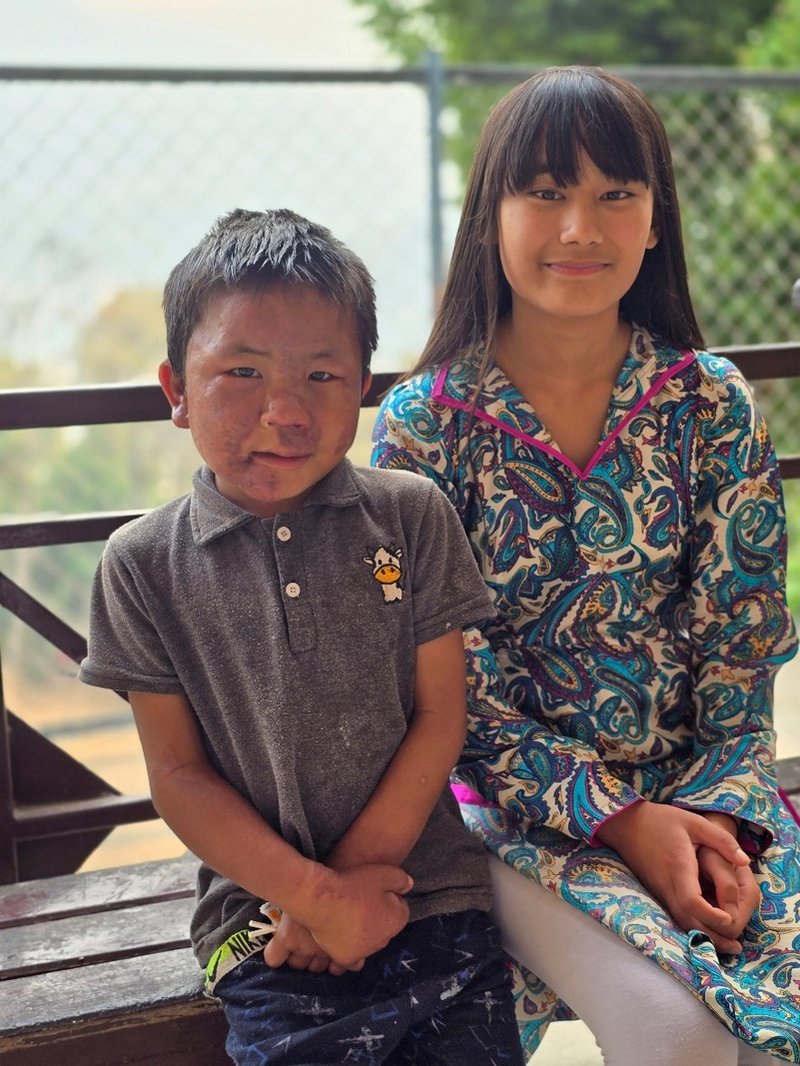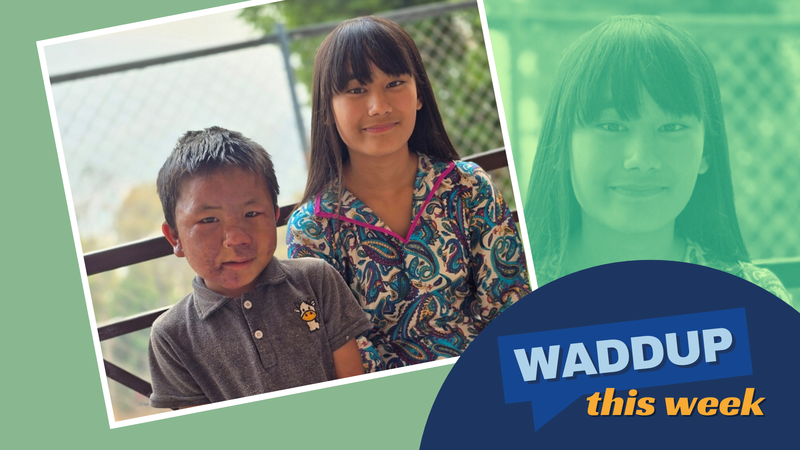A global society or a treacherous divide?
Peter Waddup, CEO - The Leprosy Mission Great Britain
This week I'm looking back at our past and pondering whether in 2024 we do indeed live in a global society.
This year we mark the 150th anniversary of The Leprosy Mission. It all began when Wellesley Bailey, an Irishman with a true spirit of adventure, set sail for India. There he came across a community of outcasts - people with clawed hands and disfigured faces. Many were blind. Wellesley felt compelled to help this ostracised community in whatever way he could. There was no cure for leprosy then. Yet Wellesley, and later his wife Alice, dedicated their lives to bringing what comfort they could to people with leprosy.
As we look back 150 years I've been musing on what it must have been like for Wellesley Bailey. Before air travel, travelling to India was a big deal! There was no jumping on a flight and coming home if it didn't go according to plan.
Fast forward 150 years and it is said we live in a global society. With air travel and the internet there is ever increasing connectedness. We can reach far-flung destinations faster than ever before. Our natural curiosity has even led to now hundreds of space launches each year. Seemingly not only the world but the universe is shrinking too! Yet when it comes to Neglected Tropical Diseases like leprosy, so little has changed despite our shrinking world.
I have walked into communities no different to the one which Wellesley Bailey stumbled upon 150 years ago. Communities where there is no clean water and people affected by leprosy find solace together in a huddle of mud huts. They have not only been outcast by their family and friends but seemingly the world too. And all this for a disease that is easily curable. I do question the concept of a global society when this cruel disease is needlessly allowed to wreck lives today. If the resources and political will was there, leprosy could've been wiped out years ago.
You may have already seen that earlier this month I spent time with a group of incredible UK supporters at Anandaban Hospital in Nepal. One of our special guests was 14-year-old Marika Timmins. Marika is the daughter of my amazing colleague and Head of Fundraising Louise Timmins.

Marika has the most remarkable story! She has an unbreakable bond with Anandaban Hospital as it was her first family home. After a 12-year wait for a baby, Louise heard about the need for a family for a baby girl from our country leader in Nepal. Louise and her husband Paul were overjoyed to adopt little Marika when she was 16 months old. They spent a month bonding with her at Anandaban before bringing her back to the UK. While the flatlands of Lincolnshire have now replaced the Himalayas, it was joyous to see Marika reunite with the staff who cared for her as a tiny baby. This inspiring teenager now wants to learn Nepali so she can chat to them in their first language.
It struck me during this emotional reunion how different Marika's life could've been. She has a loving family in the UK and has enjoyed the opportunities open to many youngsters here. It seems somehow fitting that Marika's visit cemented her ambition to train as a doctor. She now wants to care for others and make a difference. As the only teenager in our group she certainly did that when she befriended a little boy called Kamal. Kamal is just seven years old and was being treated for leprosy at Anandaban.
You can see from the skin on Kamal's face that his leprosy had progressed for a while untreated. His mum Premila did the best she could and took him to a traditional healer. She was given the unhelpful advice that Kamal had been cursed by a snake God! Thankfully Kamal was eventually found by a health worker who told Premila about Anandaban. There her son could be treated and cared for free of charge.
Both Premila and Kamal had experienced the terrible prejudice surrounding leprosy. My heart went out to this newly-arrived little boy who was withdrawn and sad. But after a few days Kamal really came out of his shell! I watched him and Marika play with balloons. I saw his little face light up when she showed him photos of her dogs on her phone!
While they have a common heritage, there is a chasm between the lives of Marika and Kamal. Yet seeing the two of them taught me that friendship and having our basic needs met is all it takes to bridge a divide. It then struck me that bridging a treacherous divide is something our teams across Asia and Africa do every day. They go into remote and ostracised communities and cure people of their leprosy. They care for their bodies and give them opportunities to prosper and become part of a society. They then, by default of our world today, live interconnected lives with us. They become part of global society. A society that is economically, socially, and politically interdependent. Crucially a society in which we all have an obligation to extend its boundaries and care for each member.
Marika is missing Kamal. Inspired by her time with him, she has set herself a challenge to cure 100 children like him of leprosy. If you would like to find out more, please visit https://justgiving.com/page/cure100
